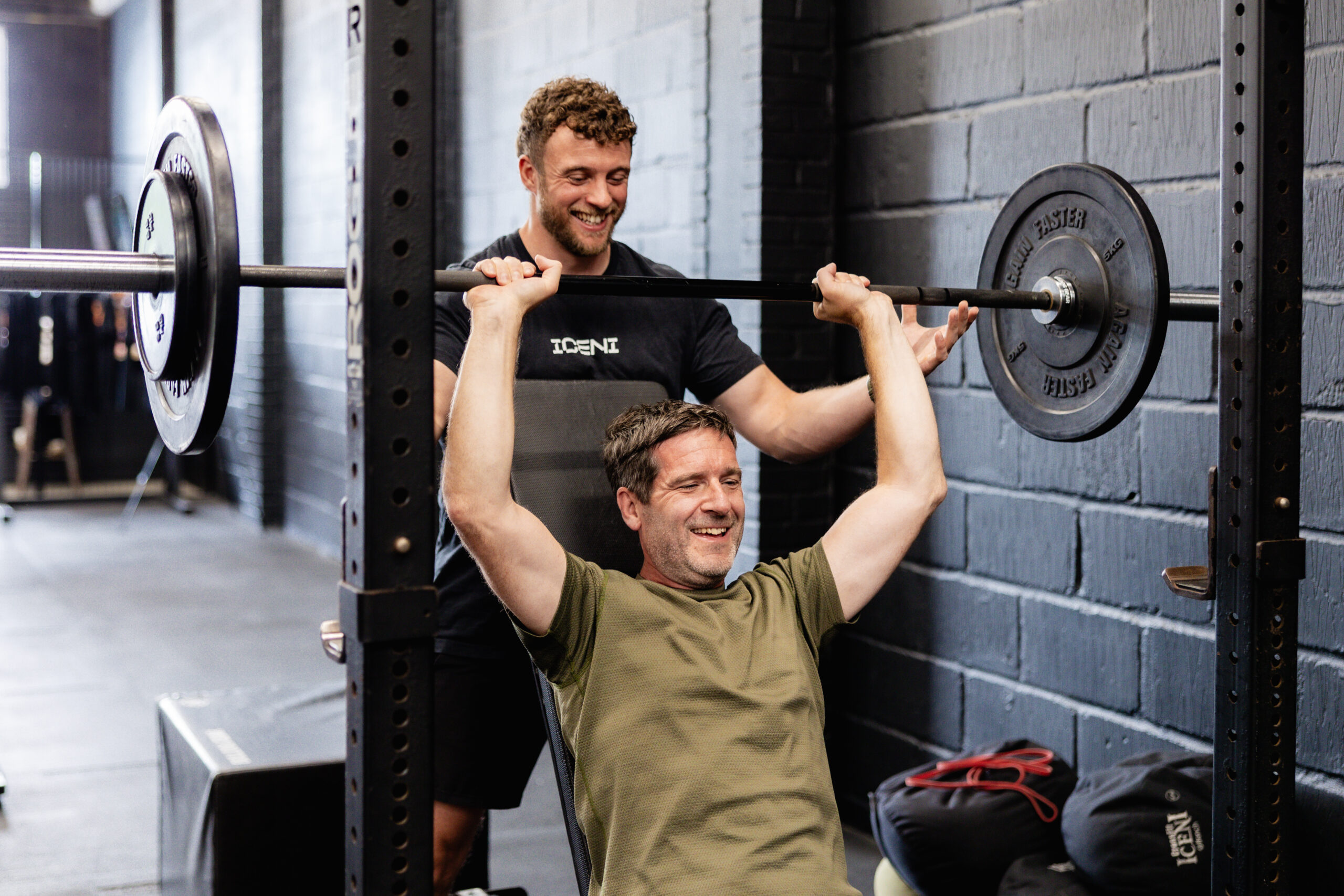
Categories
From Silence to Support: A Journey Through Men’s Mental Health
Because strength isn’t just about muscle — it’s about having the courage to seek men’s mental health support when you need it.
At Iceni, we believe that conversations around men’s mental health support shouldn’t start only when things fall apart. Recognising the early signs, understanding why men stay silent, and knowing where to turn for help can make all the difference.
The Early Signs We Often Miss
It rarely starts with a dramatic breakdown.
For many men, mental health struggles begin quietly:
- Poor sleep and feeling constantly tired
- Losing motivation to train or do the things you love
- Becoming short-tempered or withdrawn
- Drinking more, eating poorly, or relying on distractions to cope
These signs are easy to dismiss. You tell yourself it’s just stress. Work will calm down. You’ll “get back on track” next month. But avoiding the issue doesn’t make it disappear — it often grows.
Why Men Stay Silent
Mental Health UK reports that men are less likely to seek help and three times more likely to die by suicide than women.
Why? Social conditioning plays a huge role:
- “Be tough.” Many of us were raised to hide feelings.
- “Don’t burden others.” We worry about being seen as weak or dramatic.
- Fear of judgment. We worry mates, colleagues, or family won’t understand.
This silence can lead to crisis. And yet — asking for help early can change everything.
When Things Reach Breaking Point
For some men, it’s a sleepless night that doesn’t end.
For others, it’s the moment you realise you’re pulling away from the people you love, or life just feels flat and unmanageable.
If you’re here: you’re not broken, and you’re not alone. Many men who seem “together” have been exactly where you are now.
The Turning Point: Reaching Out
It’s a hard step — but the first conversation can be life-saving.
That could mean:
- Talking to a friend or family member
- Opening up to a GP
- Reaching out to a men’s peer support group
- Speaking to a therapist or counsellor
You don’t have to have the perfect words. A simple “I’m not okay right now” is enough.
Recovery and Moving Forward
Recovery isn’t a straight line — but it is possible.
Most men describe a few key milestones:
- Professional help: Therapy, medication, or structured support.
- Routine: Exercise, nutrition, sleep and structure help stabilise mood.
- Connection: Talking openly with trusted people reduces shame.
- Purpose: Rediscovering meaning in work, family, fitness or hobbies.
At Iceni, we see it often: men find strength through training, structure, and community. Exercise won’t solve everything — but it’s a powerful anchor when you’re rebuilding.
Resources for Men’s Mental Health (UK)
If you feel like you need some extra support, these organisations are here to help:
- Andy’s Man Club: Free, nationwide peer support groups for men.
- CALM (Campaign Against Living Miserably): Helpline & webchat 5pm–midnight, 365 days a year.
- Samaritans: 24/7 support on 116 123 (free).
- MindOut: Mental health support for LGBTQ+ people.
- Shout: Free text support, text SHOUT to 85258.
- NHS Every Mind Matters: Tips and tools to improve wellbeing.
- Mental Health UK: Information, advice and support for men’s mental health.
You don’t have to go it alone.
Whether it’s starting a conversation, booking a GP appointment, or joining a group like Andy’s Man Club — sometimes, the smallest step can make the biggest difference.

